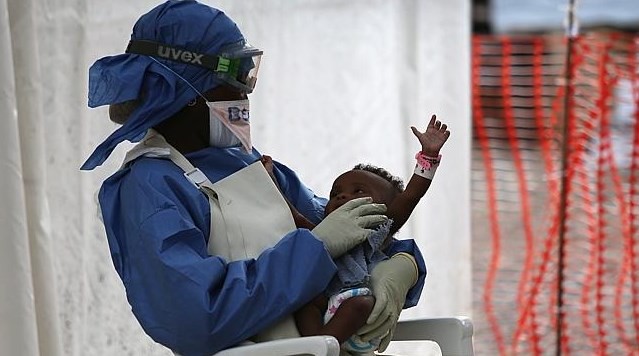Ebola virus disease, also known as EVD is a severe and often fatal illness in humans. One clinical trial has discovered a potential cure to the Ebola patients in Sierra Leone.
The average fatality rate for the disease is around 50 percent and it was within the range of 25 percent to 90 percent in previous outbreaks, as per the World Health Organization (WHO).
A trial drug is being given to Ebola patients in Sierra Leone. The said drug has been said to have shown effectiveness in treating infected monkeys in the clinical trials, as per US News.
The experimental anti-viral drug is called TKM-Ebola. University of Texas Medical Branch's Study Senior Thomas Geisbert said that three monkeys infected with Ebola have been cured by the anti-viral agent. Geisbert is a professor who specializes in microbiology and immunology in the said institution.
Geisbert said that those who got the treatment demonstrated milder symptoms and complete recovery whereas three monkeys with no treatment surrendered to the illness.
The research findings revealed that the monkeys' immune system was boosted, decreasing the amount of virus in their bodies. In addition, there were no manifestations of liver and kidney damage as well as blood disorders that are caused by the infection.
Researchers also revealed that the TKM-Ebola is the first treatment that showed effectiveness against an Ebola strain called Makona, which is accountable for the current epidemic in West Africa.
The mode of action of TKM-Ebola is to destroy the genetics of the Ebola virus by using small interfering RNA, also called siRNA or "silencer" RNA. These ribonucleic acids interfere with the transport of genetic blueprints that the Ebola virus uses to multiply.
The "silencer" RNA of the TKM-Ebola allows swift modification to adjust and target specific strains of the virus. The researchers facilitate the drug adaptability by adjusting it based on the collected information on the genetic patterns of the Ebola strain.
It was March this year when Wellcome Trust started the second phase of the clinical research on their current version of TKM-Ebola treatment. The study aims to assess safety as well as effectiveness of the drug to the Ebola patients in Sierra Leone. The investigators expect the results at a later point this year.
According to Geisbert, the research team will next advance the research on the effectiveness of the drug when administered in lower dosage.
At present, there are no licensed vaccines for EVD; however, two potential treatments are being evaluated, as per WHO.
Community involvement stands as the key to control the EVD outbreaks. This includes case management, surveillance and contact tracing, good laboratory service, safe burials, and social mobilization.



























